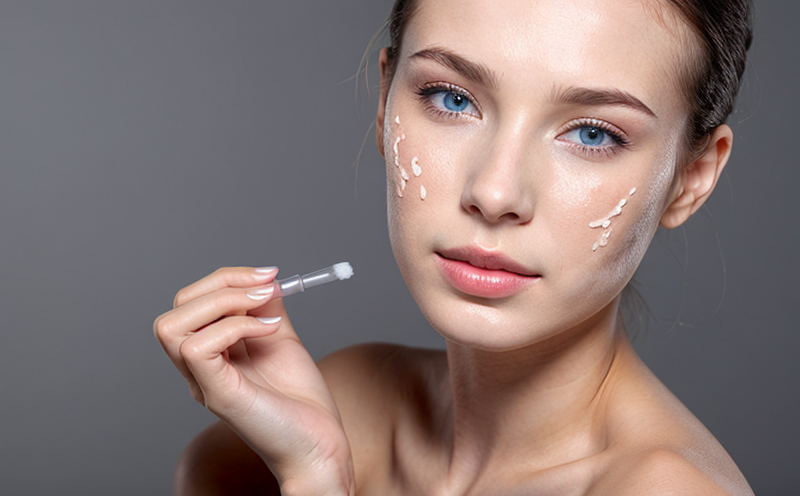Sensitization Testing of Hair Styling Products
In the cosmetics sector, ensuring product safety is paramount. Sensitization testing plays a critical role in identifying potential allergens and irritants that could cause adverse reactions when used by consumers. Hair styling products, given their direct contact with the scalp and hair, present unique challenges for sensitization testing to ensure they are safe for use.
The primary focus of this service is on sensitization testing of hair styling products. This involves assessing whether a product or its components can cause an immune response that leads to allergic contact dermatitis. Hair styling products often contain ingredients like preservatives, antioxidants, and stabilizers which need to be rigorously tested for their potential to induce sensitization.
The testing process typically begins with selecting the appropriate animal-free methods recommended by international standards such as ISO 10763-2. These methods ensure that only reliable and repeatable tests are conducted. The test specimens used in this service include hair styling products of various types, from mousses to gels.
The testing procedure involves exposing human lymphocytes to the product under controlled conditions for a specified duration. This allows for the detection of any immune response that may indicate sensitization potential. After exposure, the cells are analyzed using flow cytometry techniques to determine if there has been an increase in T-lymphocyte proliferation or activation markers.
The results from these tests provide critical data on the safety profile of hair styling products. Compliance officers and R&D engineers rely heavily on this information to make informed decisions about ingredient selection and formulation adjustments. Procurement teams also benefit as they can ensure that only safe ingredients are sourced for their products.
It is important to note that while animal-free methods are preferred, there may be instances where traditional testing methods involving animals might still be required. In such cases, the use of validated alternative methods ensures compliance with ethical and regulatory requirements.
The accepted criteria for a negative result in sensitization tests include no significant increase in T-lymphocyte proliferation or activation markers compared to control samples. Conversely, positive results would show an elevated response indicating potential allergenicity.
Applied Standards used in this testing process include ISO 10763-2 for human lymphocyte tests and ASTM D5947 which provides guidance on the preparation of hair specimens for testing. These standards provide a robust framework ensuring consistency across different laboratories performing similar tests.
| Applied Standards | Description |
|---|---|
| ISO 10763-2 | Human lymphocyte test for contact sensitizers and allergens in cosmetics. |
| ASTM D5947 | Preparation of hair specimens for testing. |
Environmental and Sustainability Contributions
- The use of advanced animal-free methods reduces the ethical concerns associated with traditional testing approaches.
- Optimizing ingredient selection based on sensitization test results can lead to less waste in production processes by minimizing failed batches.
- By ensuring product safety, these tests contribute to consumer trust and satisfaction which is beneficial for environmental sustainability as it supports long-term use of the products without replacement.
Use Cases and Application Examples
| Use Case/Example | Description |
|---|---|
| New Hair Styling Product Launch | Detect potential allergens early in the product development phase to avoid costly recalls post-market launch. |
| Ingredient Substitution | Evaluate the impact of replacing an ingredient with a known sensitizing agent with a less reactive alternative. |
| Product Line Extension | Determine if adding new ingredients to existing products would introduce any sensitization risks. |





